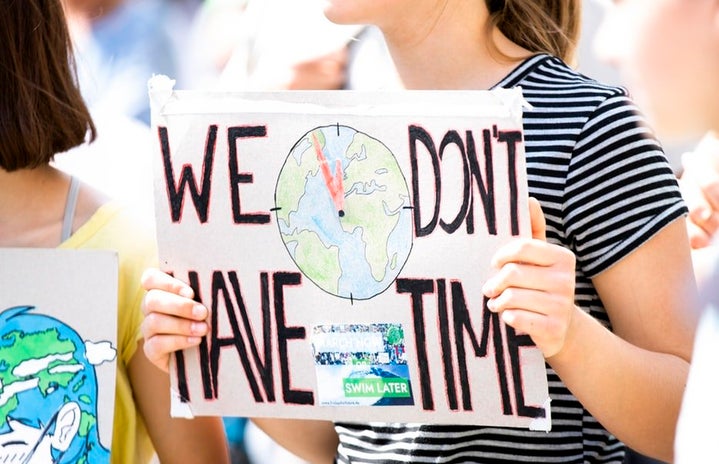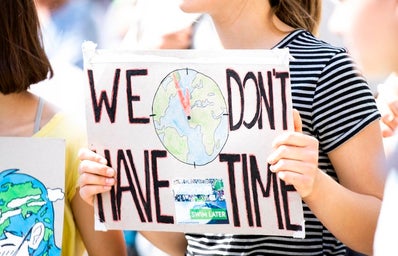With the Florida Democratic primaries fast approaching, the time to critically analyze each candidate’s platform has arrived.
Personally, issues surrounding climate change take high priority in my consideration of each candidate.
Climate issues are intertwined with other pressing topics, such as access to clean water, protecting natural spaces and social justice.
Before voting on March 17, check out how the 2020 Democratic candidates plan to address the climate crisis.
Joe Biden
On his website, Biden writes that the Green New Deal encompasses two key truths at the core of his plan, which is that “the United States urgently needs to embrace greater ambition on an epic scale to meet the scope of this challenge,” and that “our environment and our economy are completely and totally connected.”
Biden’s priorities include net-zero emissions by 2050, international cooperation and environmental justice.
While Biden voted for environmentally-friendly legislation during his 36 years in the Senate, there are some blips in his record.
Inside Climate News writes that Biden “missed a key vote in 2008 on the Lieberman-Warner Climate Security Act, which was said to be the strongest global warming bill to ever make it to the Senate floor.”
Overall, however, Biden has endorsed central aspects of the Green New Deal.
Michael Bloomberg
Bloomberg has experience in climate matters: Inside Climate News writes that he developed a climate action plan after Hurricane Sandy in 2012, served as a UN climate envoy and has worked with the Sierra Club’s Beyond Coal campaign.
Like his fellow candidates, he is aiming for net-zero emissions by 2050. Bloomberg also promises to “embed environmental justice into how the government conducts its work.”
Bloomberg has also faced criticism for his environmental policies.
In the Beyond Coal campaign, closed coal plants were not replaced by renewable energy sources.
Additionally, in an opinion article, he wrote that the Green New Deal “stands no chance of passage in the Senate over the next two years.”
Inside Climate News also raises concerns that youth climate activists may not want to endorse a billionaire regarding climate issues.
Pete Buttigieg
In South Bend, Indiana, Buttigieg saw two catastrophic floods and established an Office of Sustainability.
Buttigieg’s plan regarding the climate crisis revolves around building a clean economy, investing in resilience and demonstrating global leadership in meeting the standards set by the Paris Agreement.
He sets short-term and long-term goals, as well. By 2025, he will aim to double the clean electricity generated in the US; like other candidates, he aims to achieve net-zero emissions by 2050.
While Buttigieg’s plan includes international goals, he does not spend as much as candidates like Sanders and Warren.
When confronted with questions regarding the fact that he’s the youngest candidate, Buttigieg has pointed out that when he’s the same age as other candidates, the world could be suffering from the drastic consequences of climate change.
Amy Klobuchar
Klobuchar has outlined actions she would take in the first 100 days of her administration.
These include reentering the Paris Agreement, restoring the Clean Power Plan, strengthening fuel-economy standards and working to reduce the federal government’s carbon footprint.
In her Senate career, she introduced legislation intended to combat the climate crisis. She also has a 96 percent lifetime rating from the League of Conservation Voters.
Unlike some of her fellow candidates, Klobuchar has not fully integrated the Green New Deal into her plans.
She has also been unclear in how she will attempt to reach net-zero emissions and has not endorsed more drastic actions, such as banning fracking.
Bernie Sanders
Sanders is lauded as being one of the more environmentally progressive candidates.
In the past, he has had legislative success in advocating for climate success. In 2007, a national energy efficiency grant program that he introduced was passed.
Furthermore, he successfully advocated for $3.2 billion to be given to this program in the 2009 economic recovery package.
Key points of Sanders’s climate plan include ensuring justice for communities most affected by climate change, reducing emissions, investing in conversation and holding the fossil fuel industry for their actions.
On his website, Sanders says that he will “launch the decade of the Green New Deal, a 10-year, nationwide mobilization centered around justice and equity during which climate change will be factored into virtually every area of policy, from immigration to trade to foreign policy and beyond.”
Elizabeth Warren
Warren has fully embraced the Green New Deal in her climate plan, and along with Sanders, supports a fracking ban.
While her fellow candidates aim for net-zero emissions by 2050, Warren looking to achieve this same goal by 2030.
Her website lists several dimensions to her climate plan, which includes American-made clean energy and the “Blue New Deal” that emphasizes ocean health.
She strongly emphasizes environmental justice, writing, “We have a crisis of environmental injustice in America that is the result of decades of discrimination and environmental racism compounding in communities that have been overlooked for too long.”
While Warren does not have an extensive history of environmental action, she has taken steps to increase her leadership regarding the issue.
She became one of the first candidates to sign the No Fossil Fuel Money Pledge.


